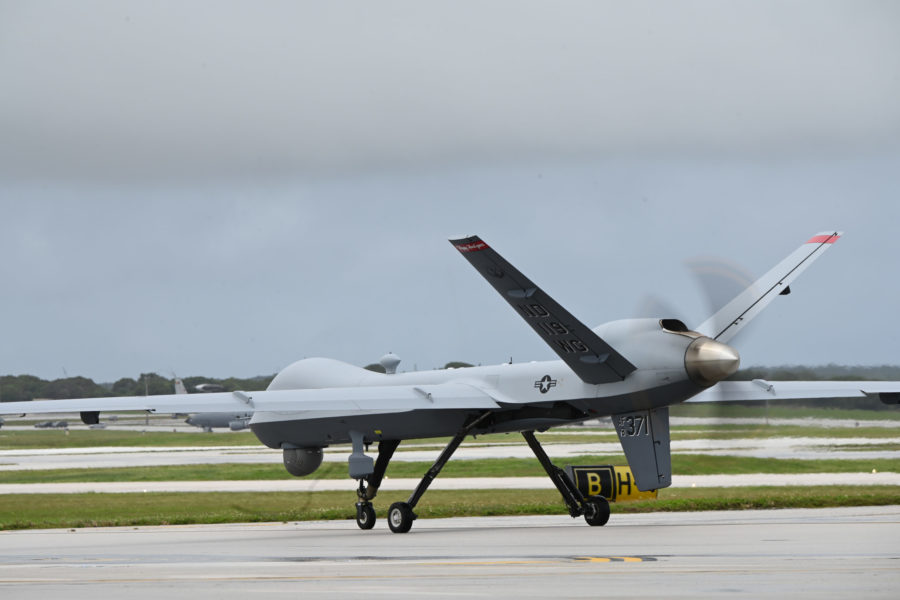A Russian fighter collided with an American drone over the Black Sea on March 14, damaging the drone and causing it to crash, according to U.S. European Command.
The U.S. military said the incident occurred in international airspace following “an unsafe and unprofessional intercept” of a U.S. Air Force MQ-9 Reaper at 7:03 a.m. Central European Time. The U.S. routinely operates surveillance drones over the Black Sea including near Russian-occupied Crimea.
Two Russia Su-27s, NATO reporting name Flanker, dumped fuel on and flew in front of the drone “several times” before one of them eventually struck the MQ-9’s propeller, which is mounted at the rear, according to the U.S. military.
“Our MQ-9 aircraft was conducting routine operations in international airspace when it was intercepted and hit by a Russian aircraft, resulting in a crash and complete loss of the MQ-9,” U.S. Air Force Gen. James B. Hecker, the commander of U.S. Air Forces Europe-Air Forces Africa, said in a statement. “In fact, this unsafe and unprofessional act by the Russians nearly caused both aircraft to crash.”
Pentagon press secretary Air Force Brig. Gen. Patrick S. Ryder said the Russian fighter “ran into” the MQ-9. The Russian aircraft was likely damaged but was able to land, Ryder said. The U.S. was forced to intentionally crash the drone. Ryder declined to provide details on the MQ-9’s payload, including whether or not it was armed.
“They collided with the aircraft, damaging the propeller, and essentially putting it in a situation where it was unflyable and uncontrollable, so we brought it down,” Ryder told reporters at the Pentagon.
EUCOM added in a statement that the collision “demonstrates a lack of competence” on behalf of the Russians.
National Security Council strategic communications coordinator John Kirby told reporters President Joe Biden had been briefed on the incident. Kirby said Russian intercepts of U.S. planes and drones are not uncommon, but it is “the first time that an intercept resulted in the splashing of one of our drones.”
“I want to stress that that this MQ-9 was operating in international airspace over international waters and posed a threat to nobody,” Kirby said. Ryder added the MQ-9 was “well clear of any territory in Ukraine.”
State Department spokesman Ned Price said the U.S. was summoning the Russian ambassador to the department “convey our strong objections.”
In February 2022, Russian Su-35 fighters got within five feet of a Navy P-8 surveillance plane over the Mediterranean Sea after crossing into its flight path.
“This incident follows a pattern of dangerous actions by Russian pilots while interacting with U.S. and Allied aircraft over international airspace, including over the Black Sea,” EUCOM said.
The MQ-9 crash also follows increasingly aggressive behavior by Chinese fighters when intercepting American surveillance planes over the South China Sea. U.S. officials insist they will not be deterred by harassment of their aircraft.
“U.S. and allied aircraft will continue to operate in international airspace and we call on the Russians to conduct themselves professionally and safely,” Hecker said.

